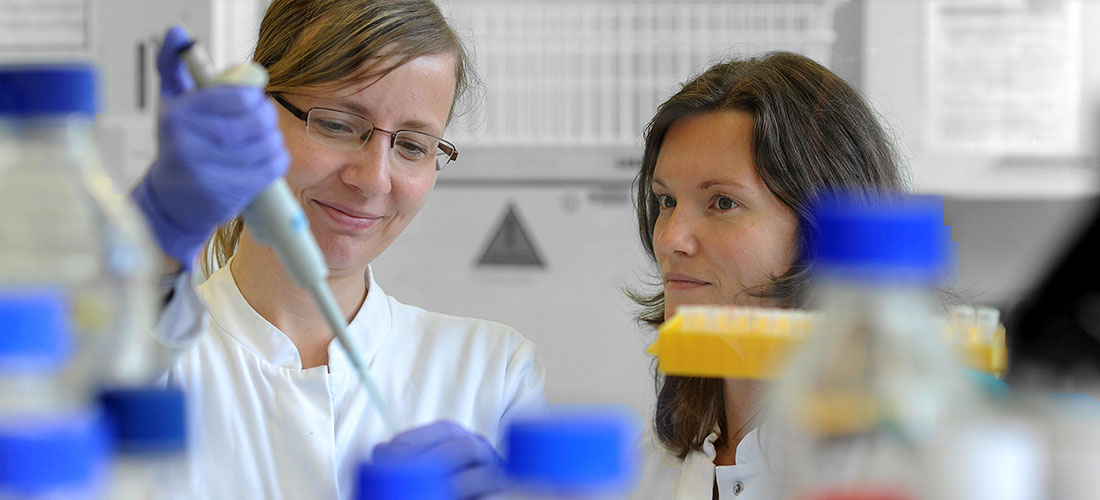A03: Extrachromosomal DNA (ecDNA) evolution and re-integration as a driver of progression and metastasis
Extrachromosomal DNA (ecDNA) poses a great challenge in oncology, as it is a major driver of aberrant oncogene expression and contributes to rapid tumor evolution. Extrachromosomal DNA is the most common form of oncogene amplification in most human cancer entities and affects women, men, children and adults alike. Clinical outcomes in cancer patients whose tumors harbor ecDNA are significantly worse compared to patients whose cancers lack ecDNA. This is particularly true for neuroblastoma, the cancer entity in which ecDNA was first discovered many decades ago. We recently demonstrated that ecDNA copy number heterogeneity can drive treatment resistance and that re-integration is common in neuroblastoma and associated with adverse clinical outcomes. We hypothesize that ecDNA copy number and re-integration jointly drive genomic neuroblastoma heterogeneity and evolution, thereby, significantly contributing to metastasis and relapse, a phenotype particularly characteristic of malignant disease. Project A03 aims to supply proof-of-principle for this hypothesis, discover the underlying mechanisms and apply these insights for the rational development of innovative diagnostics for personalized medicine. We will detect and reconstruct ecDNA re-integration and evolution by combining comparative tumor genomics with the development of novel algorithms. A03 incorporates three investigative steps comparing primary tumor and metastatic samples from new data. We will (i) investigate the impact of ecDNA copy number and re-integration on the evolutionary trajectories and clonal dynamics in neuroblastoma, (ii) analyze their heterogeneity in corresponding tumor-metastasis sample pairs to detect differences in metastatic cells, and (iii) assess how different re-integration sites contribute to transcriptomic changes. Task 1 will develop new algorithms to investigate ecDNA inheritance and neuroblastoma evolution. These will be applied to determine how ecDNA and its re-integration contributes to genetic (Task 2) and epigenetic (Task 3) heterogeneity between primary and metastasized neuroblastomas. Task 4 will investigate the use of long-read Nanopore sequencing-based SCNA (including ecDNA) detection as a diagnostic tool for neuroblastoma disease stratification, as a first step towards translating our methods into clinical use. This work has the power to produce new predictive markers for metastasis and uncover new tumor evolutionary mechanisms explaining the development and progression of refractory and relapsed neuroblastoma. Mechanistic discoveries could lead to new therapeutic approaches, and because ecDNA has been detected in most cancers, results could impact predictive marker applications and potentially feed into rational therapy design for other cancer entities, extending the range of clinical impact from project A03.
PhD positions and place of work: 2
1 wet-lab with interest in bioinformatics (PI: Anton Henssen, Berlin, Charité)
1 computational (PI: Roland Schwarz, University Cologne)



